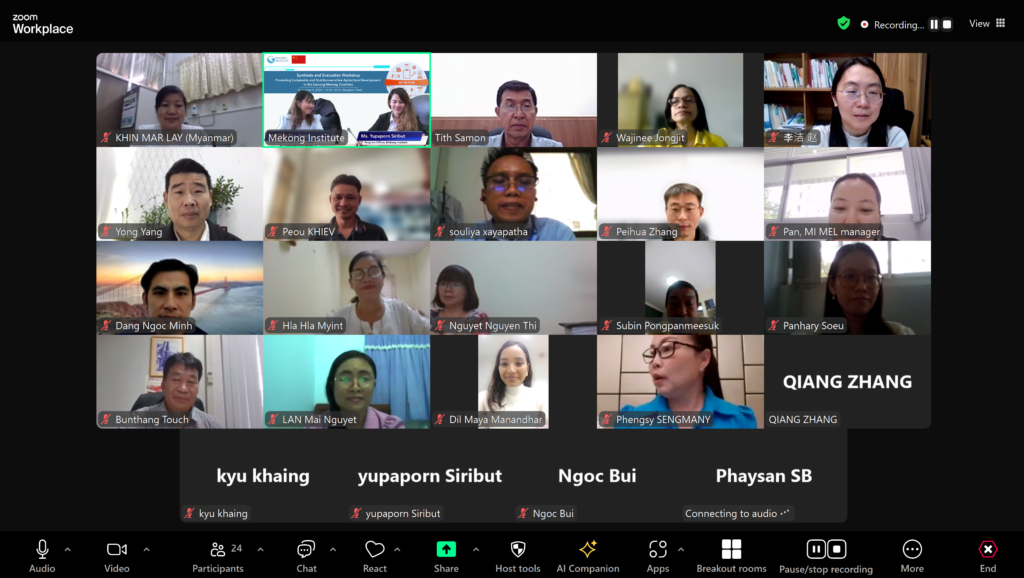Khon Kaen, Thailand – November 5, 2024 – With the conclusion of the ‘Promoting Sustainable and Nutrition-Sensitive Agriculture Development in the Lancang-Mekong Countries’ project, beneficiaries from the six Lancang-Mekong countries showcased valuable outcomes and best practices in a Synthesis and Evaluation Workshop that demonstrated the project’s tangible benefits and practical impact on regional agriculture. Organized by the Mekong Institute (MI) with the support of the Government of the People’s Republic of China, the workshop marked the culmination of the year-long comprehensive regional training program that saw the implementation of country-specific action plans.
Bringing together 28 participants, the workshop featured presentations from each Lancang-Mekong country, focusing on practical achievements and forward-looking strategies.
In Cambodia, a workshop on nutrition-sensitive agri-food systems was organized to equip young leaders with knowledge and skills for promoting healthy food choices and combatting malnutrition in local communities.
A beef cattle breeding project in Yunnan Province in China improved breeding practices, boosted farmer income, and strengthened sustainable livestock production.
In Lao PDR, a study was done on the impact of fairtrade certification on coffee production. The study revealed significant improvements in income, food security, and environmental stewardship for certified farmers.
The need for climate-resilient practices was a key finding of an assessment done in Myanmar on groundnut production in the Central Dry Zone. The assessment also emphasized the importance of accessibility of resources to enhance crop yield and farmer resilience.
Thailand worked on an initiative to promote the low-sugar “Ghor-Khor 43” rice, fostering public health awareness and community participation to address the rise of non-communicable diseases.
Finally, in Viet Nam, a rice-shrimp farming model in the Mekong Delta integrated sustainable farming practices to balance ecological preservation and economic growth amidst climate challenges.
These country initiatives represent substantial progress in strengthening regional food systems and sustainable agricultural practices. Through shared learning and regional cooperation, the project has enabled diverse, nutrition-sensitive approaches to address food security challenges across the Lancang-Mekong countries.








